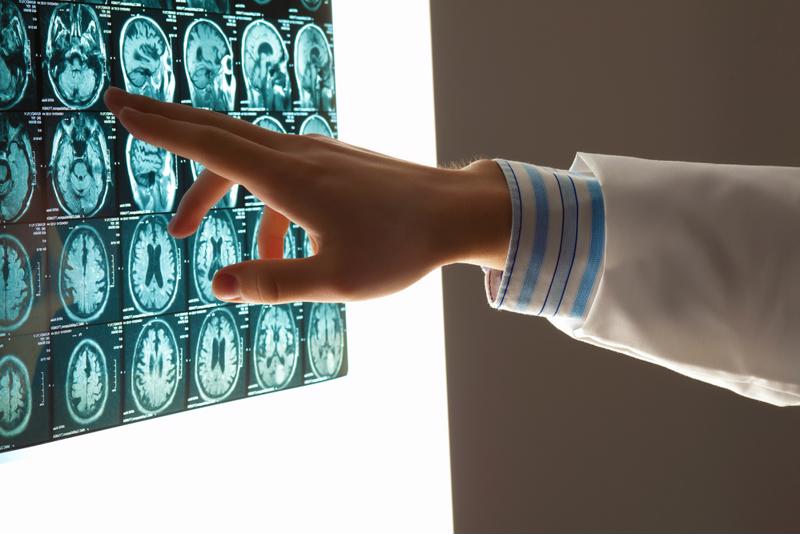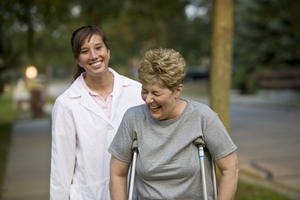The brain is a complex organ. It controls everything that your body does, from the automatic actions like digestion, to conscious movements of your arms and legs. Because your body needs your brain to function, it's important to seek out all of the necessary treatment options if you sustain a traumatic brain injury. Many people who sustain a TBI would greatly benefit from physical therapy, including those working in travel therapy jobs.
"1.7 million TBIs occur in the U.S. each year."
According to the American Physical Therapy Association, most of the 1.7 million traumatic brain injuries that occur each year in the country are typically caused by falls, car crashes and blows to the head. When someone sustains an injury like this, their brain moves inside of their skull, causing damage to the organ, known as a closed injury. If the injury is caused by a sharp object or one that breaks the skull, like a bullet, it's known as a penetrating injury. Here are some important points to keep in mind in your physical therapy jobs:
Symptoms of a traumatic brain injury
Some symptoms of a traumatic brain injury are more severe than others. While some signs may be apparent right away following the injury, others may not appear for days or weeks. No two brain injuries are alike, and there are multiple factors that contribute to how a patient is affected by it. For example, the location, the severity and the patient's mental state prior to the injury all play a large part in how the side effects manifest. According to the Mayo Clinic, here are some of the most common indications of brain injuries:
- Physical: Loss of consciousness, confusion, disorientation, headache, nausea, fatigue, change in sleeping habits, dizziness, seizures, pupil dilation, numbness in limbs, lack of coordination and fluids excreting from nose or ears.
- Sensory: Blurred vision, sensitivity to light or sound, tinnitus, and changes in taste and smell.
- Psychological: Difficulty concentrating, memory loss, mood changes, depression, anxiety, agitation, slurred speech, personality changes and difficulty controlling emotions.
If a traumatic brain injury is severe, there will be no doubt that the patient needs immediate medical care. Instruct your patients not wait for any additional symptoms aside from loss of consciousness to become apparent.

Who is at risk for TBI?
People of any age and lifestyle can sustain a traumatic brain injury since the vast majority of these injuries are accidental. However, there are certain demographics that are most at risk, according to the Mayo Clinic. These include children from newborns to the age of 4, young adults between the ages of 15 and 24 and adults over the age of 75. Adults can protect themselves from potential TBIs by using seatbelts and not driving under the influence as well as wearing proper helmets while participating in sports or any possible dangerous activity. It's important for children to be safe by having proper adult supervision when playing and having their car seats placed securely in the car. Seniors can stay safe by limiting how much they use ladders and footstools or traveling up and down stairs.
These injuries can range in severity. Mild TBIs, like concussions, are common in athletes and few lead to long-term complications or disabilities. However, the APTA states that approximately 43 percent of patients hospitalized for moderate to severe TBIs will have some form of disability a year after the accident that caused it. Some patients' brain functions may never fully return to normal.
This is why it is so crucial for people who sustain these types of injuries seek out the proper treatment. If someone has sustained a mild brain injury, it's important that they are closely monitored by a loved one to make sure there are no lingering or worsening symptoms. For a severe brain injury, the patient will likely be treated with a combination of medication and rehabilitation, sometimes following a surgery. Depending on the nature of the brain injury, rehabilitation can consist of any combination of the following: psychiatry, physical or occupational therapy, speech pathology, vocational counseling, recreational therapy and visits from TBI specialists.
"Seek a travel therapist who is a Certified Brain Injury Specialist."
How physical therapy can help TBI patients
When seeking physical therapy for a brain injury, it's important that patients ensure that the therapist in question has had experience working with patients with similar conditions. If possible, it's best to seek a therapist who is a board-certified clinical specialist or has the credential, Certified Brain Injury Specialist.
While a physical therapist can't treat the brain itself, he or she is able to help patients re-learn movements that their bodies may have been unable to accomplish due to the injury. This includes restoring muscle and joint flexibility, regaining lost strength after a patient has been bedridden or helping them get back in touch with their sense of balance. In some cases, physical therapy can start when a patient is still bedridden, helping him or her learn how to sit up and move before he or she is ready to attempt to stand again.
Once a patient has begun making progress with his or her physical therapy, the hospital may give him or her the OK to continue treatment from home. This is often supplemented with visits from a physical therapist a few times a week or allowing the patient to commute back to the hospital or a rehabilitation clinic for appointments, depending on how capable he or she is. If the patient needs to begin using a wheelchair, cane, brace or walker, it is the physical therapist's job to help him or her to use it effectively. If you're interested in helping people across the country with traumatic brain injuries learn to function in everyday life once again, travel therapy may be the occupation for you.

